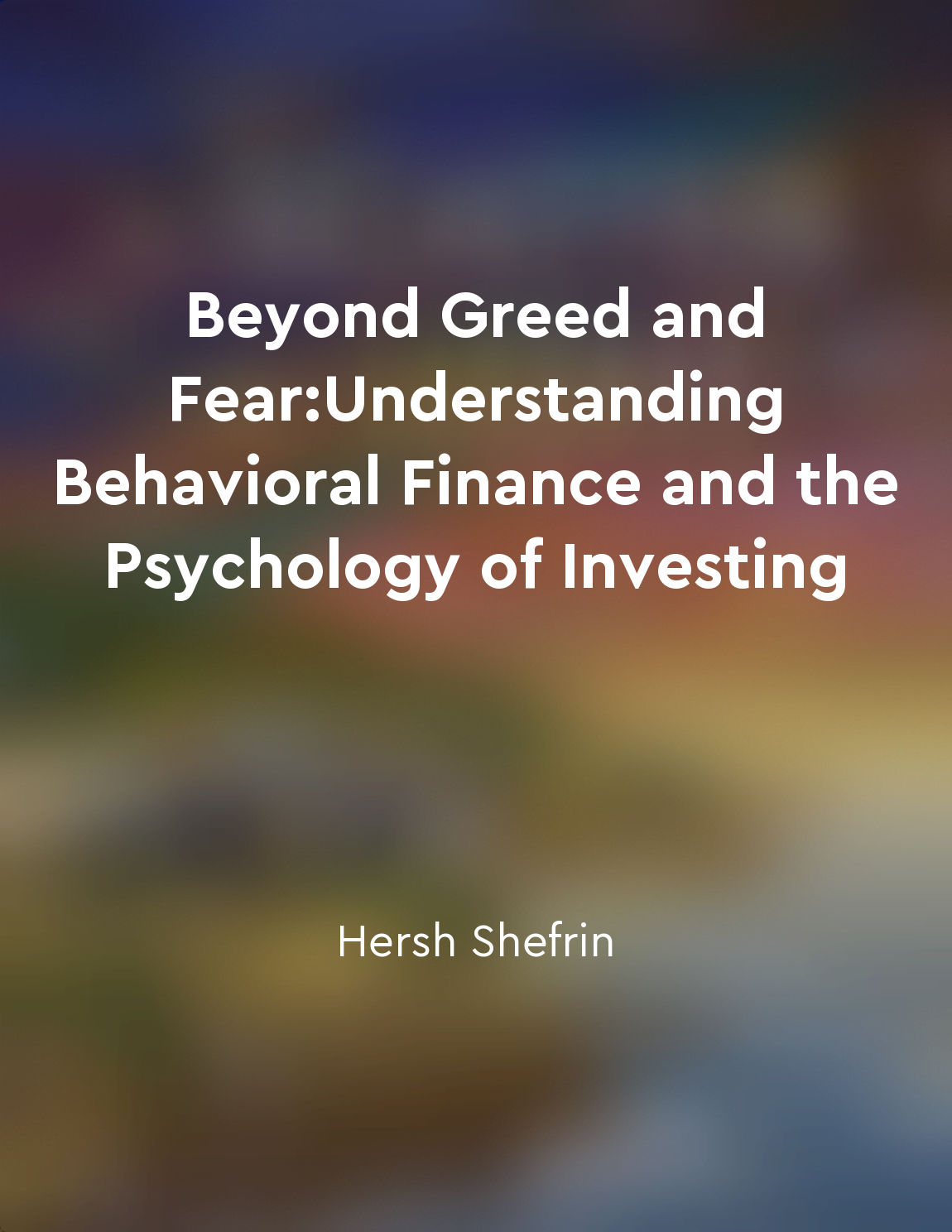Prospect theory explains how individuals evaluate risk and reward from "summary" of Beyond Greed and Fear:Understanding Behavioral Finance and the Psychology of Investing by Hersh Shefrin
Prospect theory provides a framework for understanding how people make decisions in situations involving risk and uncertainty. According to this theory, individuals do not evaluate outcomes in absolute terms, but rather in relation to a reference point. This reference point can be influenced by a variety of factors, such as past experiences, expectations, or social norms. When evaluating potential outcomes, individuals tend to focus more on potential losses than on potential gains. This asymmetry in decision-making is known as loss aversion. People are generally more sensitive to losses than to equivalent gains, leading them to take greater risks in order to avoid losses. In addition to loss aversion, prospect theory also describes the concept of diminishing sensitivity. This means that individuals are less sensitive to changes in outcomes as they move further away from the reference point. For example, a $100 loss may have a greater impact on a person's decision-making than a $100 gain, even though they are of equal magnitude. Another important aspect of prospect theory is the idea of framing. The way in which information is presented can influence how individuals perceive risks and rewards. People tend to be more risk-averse when faced with choices framed in terms of potential gains, and more risk-seeking when faced with choices framed in terms of potential losses.- Prospect theory helps explain why individuals may deviate from traditional economic models of rational decision-making. By taking into account the psychological factors that influence how people evaluate risk and reward, this theory offers valuable insights into human behavior in financial and investment contexts.
Similar Posts

Business cycles are a natural part of economic growth
Business cycles are an inherent feature of the economic landscape. These cycles represent fluctuations in economic activity ove...
Take advantage of taxadvantaged accounts
One of the most overlooked ways to maximize your wealth is by utilizing tax-advantaged accounts. These accounts are specificall...

Social comparison can lead to poor financial choices
When we compare ourselves to others - whether it's our friends, family, or even strangers on social media - we often fall into ...

Understanding people's behavior is essential
To truly comprehend the behaviors of individuals, it is imperative to delve deeper into the intricacies of human nature. Unders...
Ultimately, we must learn to accept and embrace the unpredictability of life
Life is inherently unpredictable, filled with randomness that we often fail to acknowledge or understand. We tend to seek patte...
Recognize the impact of the conjunction fallacy on our beliefs
The conjunction fallacy is a tricky mental pitfall that can lead us astray in our beliefs. It occurs when we mistakenly believe...

Set realistic financial goals
When it comes to planning for your financial future, it is essential to have a clear understanding of what you hope to achieve....
Savings equals investment in an economy
In an economy, savings and investment are two sides of the same coin. When individuals save a portion of their income, they are...
Our brains can trick us into thinking we are right
Our brains can trick us into thinking we are right. This is a concept that has been explored in various studies and research, s...
Create a decisionmaking feedback loop
The idea behind a decision-making feedback loop is to continuously evaluate and adjust our decisions based on feedback from the...


